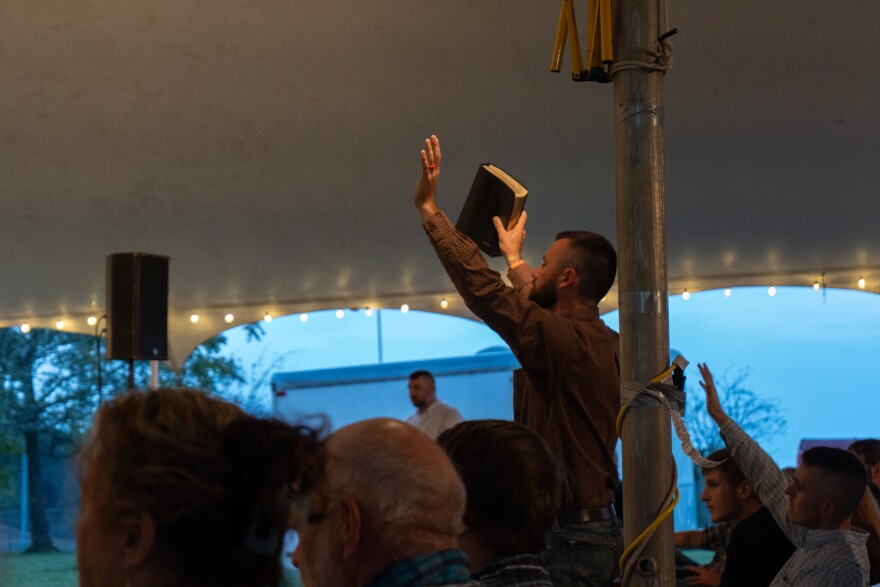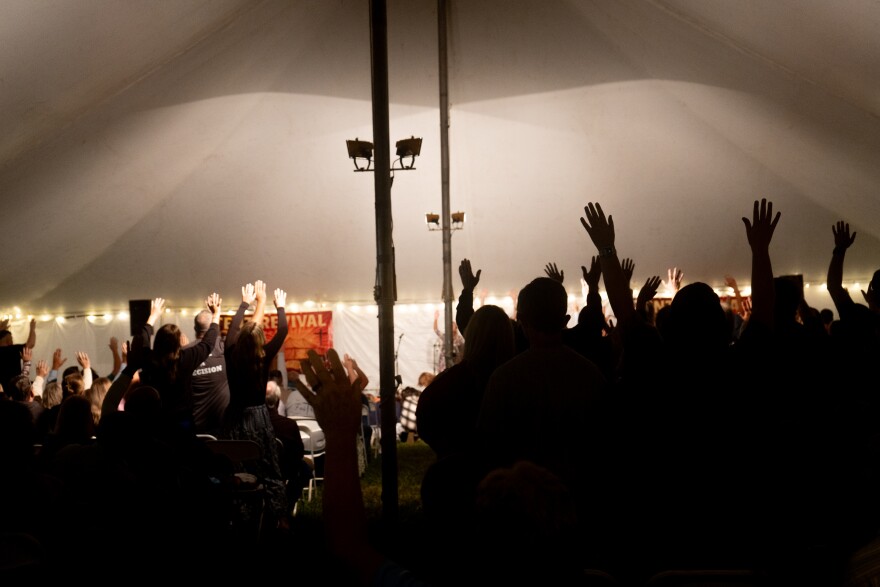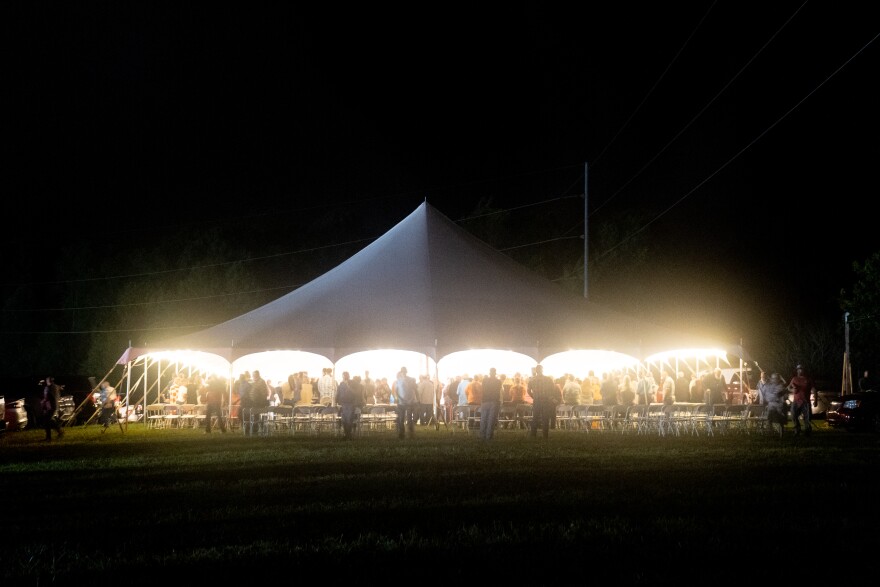On a plot of farmland adjacent to an elementary school in Oneida, hundreds of churchgoers flock to a white tent standing tall on a hill. The glare of floodlights spills out into the late September night, bathing the field and a winding country road in an ethereal glow. After the lights, the first thing passersby will notice is the music, amplified by two speakers at the back of the tent which somehow carry the harmonies far beyond the confines of the hilltop.
This is a traditional Southern tent revival. It’s being put on by several churches in Scott County that are fed up with the distractions of modern life. To reconnect with God, local pastor Jordan Potter pitched an 800-person tent to host one week of nightly services.
“And right now we need God back not only in Scott County, but in Tennessee, Knox County, surrounding counties – the entire nation,” Potter said.
Potter was born and raised in Oneida, and has been preaching for about a year. He doesn’t have his own church. He says he was called by God several months ago to organize a revival for his community.
After weeks of planning, he began draping banners and posting signs all over town. It paid off. Hundreds of Scott County residents showed up to fill the tent. Some had to set up their own chairs outside, craning their necks for a glimpse of the worshippers and pastors on the wooden stage at the back of the tent.
“I honestly feel like there's going to be a movement here in Scott County that we've never seen before, and it's going to carry on someplace else,” Potter said. “I don't think it's going to stop here. I think it's going to move right across the entire state of Tennessee.”
Revivals have been a staple of Appalachian culture for decades. When many people think of Southern evangelism, they think of the white tents, the screaming, the shouting – what Jordan calls a spiritual “high.”
“And when you come off of a very good revival, there is a high that you can never get but through God,” he said. “I don't care what you pick up in this world, you cannot get that same high.”

It’s a way for followers of Jesus Christ to reconnect with the Holy Spirit, one of the three tenets of the Trinity. While this tradition today feels uniquely American, its origins date back to medieval Europe. That’s according to Joe Witt, an associate professor of religious studies at the University of Tennessee who teaches a course on religion in Appalachia.
“That's actually where the genesis of the tent revival is, in Scotland and England, and they brought it over with them,” Witt said. “And so that's part of the reason why it becomes such a prominent method here in this region, is because a lot of people knew about it back over in Europe.”
In those days, revivals were a practice of convenience. Large customs like the Holy Eucharist –or Communion – would be taken together by several smaller churches. To accommodate the crowds, tents would be erected. It wasn’t until the early-to-mid 20th century that tent revivals began to become a religious tradition of their own, says Witt.
“And so now this kind of preaching – this very emotional service – is a necessary part, instead of just kind of a fun event,” he said. “Now it's kind of a necessary dimension of worship.”
The spectacle of the services, and the intensity of the messages delivered by the pastors involved, are designed to evoke emotion from people who otherwise may not accept Christ. For decades, this was the leading method for southern gospel preachers to spread their message. But with the advent of television in the 1950s, faith leaders quickly adapted to the new medium.
“What happens is television and radio,” Witt said. “Now you can get these messages to many more people, instead of just having to tour the communities.”
Potter claims the last tent revival in Scott County was held in the 1950s. For years, he says, he dreamed of putting on one of his own – of reviving his community’s faith.
“And lo and behold, I didn't think I was going to be the person holding one,” he said.
This revival was a hit. Hundreds filled the Oneida hilltop, many clamoring for an opportunity to connect with other believers of different churches on a personal level.

“I think there's something very human in the tent revival, and just what it shows us about what religion really is for people, whatever religion we're talking about,” Witt said. “In this modern era when we have technology and ChatGPT and everything seems so mediated, people are still looking for something – that type of spiritual connection – and tent revivals are one way to provide it.”
Potter’s tent revival ran from Monday, Sep. 22 to Saturday, Sep. 27. He said he’s hoping to organize them again in the future to help keep people’s minds centered on God.
“A lot of people think I might be crazy, but this entire experience has been faith,” Potter said. “If we have faith in God and trust Him, you're going to see his faithfulness come to light.”



